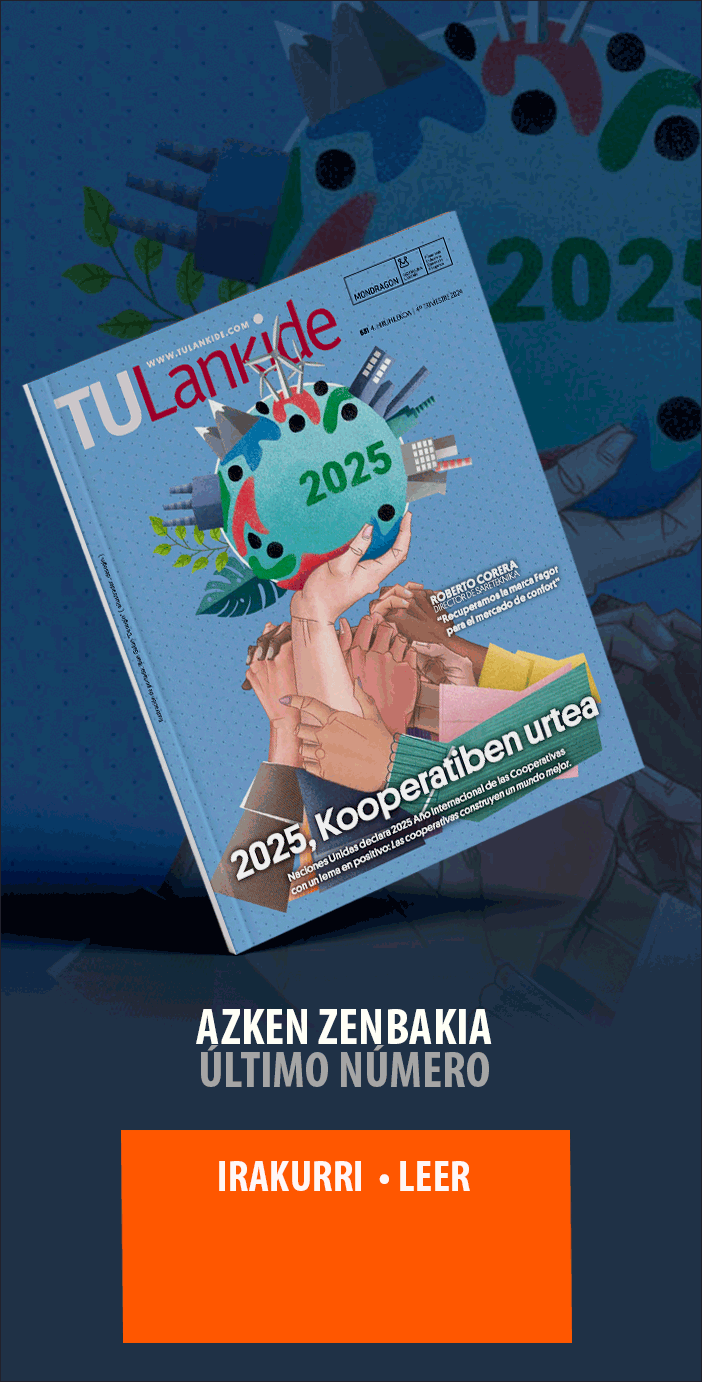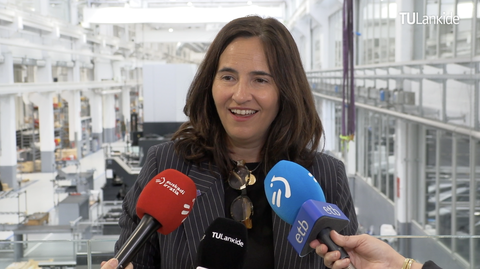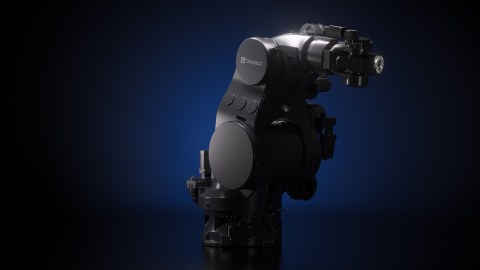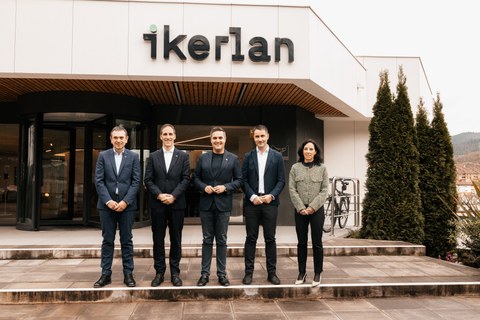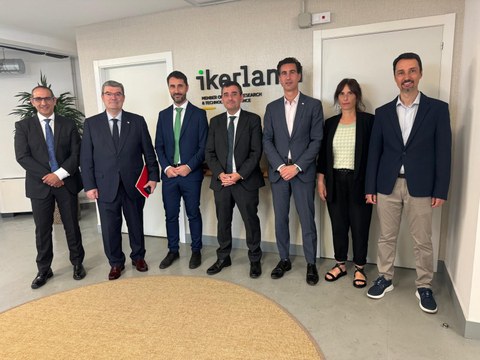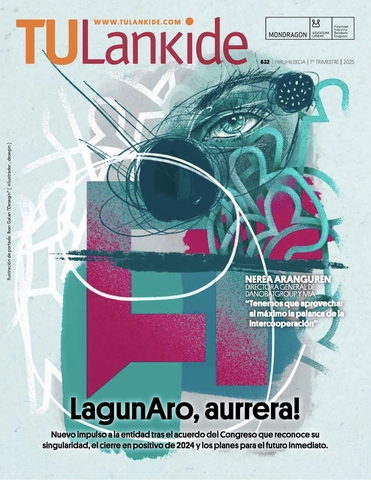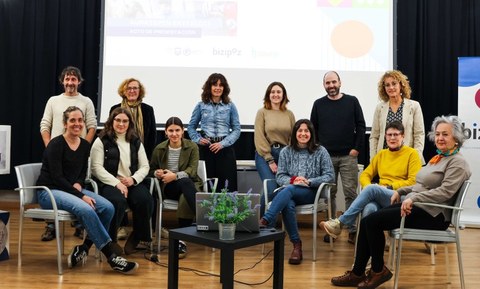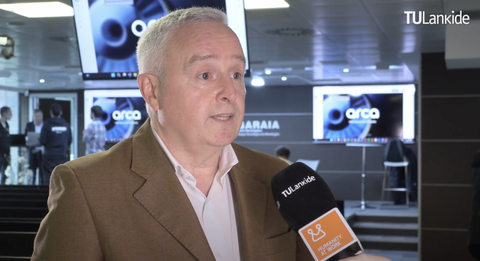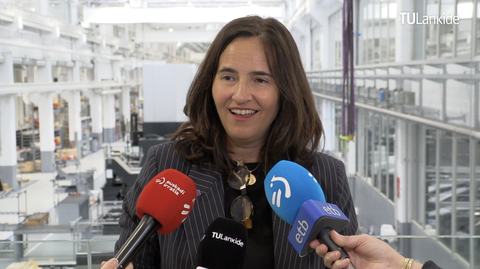Most read
- 1. Danobatgroup sets a new turnover record of €344 M in 2024
- 2. Danobat revolutionizes manufacturing with a new precision robot
- 3. MONDRAGON expands its digital presence with Bluesky
- 4. MONDRAGON leads ASETT, the Social Economy Hub for social transformation
- 5. Orbik Cybersecurity, the first technological start-up to become a co-operative
- 6. Eika acquires Stone Cooker S.L and its innovative 'Suiseki' table to boost growth
CIC microGUNE bets for microtechnologies as the driving force for the competitiveness of the Basque industry
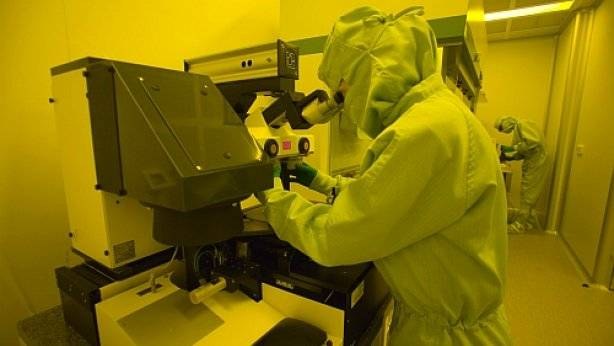
The Science Plan will redirect the research carried out in the center to the fields of mobility, transport and life sciences. "The ultimate goal is to act as a spearhead in these areas, to promote the differentiation and competitiveness of the Basque enterprise network," says Nuria Gisbert, General Manager of CIC microGUNE.
The Centre has chosen this new orientation during the course of its 2013-2016 Strategic Plan. Working together with different agents, such as the nanoBasque agency and Basque driving companies, CIC microGUNE has determined those markets where microtechnologies could have the biggest impact.
The mentioned mobility and life sciences sectors are the areas in which the Centre considers that will be able to generate transversal and useful knowledge to contribute to the developments of the Basque industry. “The skills of CIC microGUNE enable the center to make a useful contribution in that direction, which could be very valuable in the future," said Gisbert.
Together with the new plan, the center has launched an approaching process to leading companies of the Basque country, to which microtechnologies could help in adding value to products and production processes. Gisbert says that “CIC microGUNE aims to provide the generated knowledge to the companies, taking into account that the final aim is the transfer of technology”
To reach this aim, CIC microGUNE expects to become a reference in the research of micro-electro-mechanical systems (MEMS). They are micro/nano machines with a size between one millimeter and one micrometer (a millionth part of a meter), capable of doing different functions. These devices have large advantages: low cost, size and volume, and a small use of material and energetic resources.
We can find MEMS in many of our daily use items, such a smartphones, pressure sensors of cars` tires, or the accelerometer of the Wii console. This confers a great potential to generate opportunities in multiple sectors, and that is the reason why the center has identified them as its bet for the future.
“The advantages of the use of micrometric devices, with small size and weight, low energy use, and easy integration, assure the impact of these MEMS in industry”, states Gisbert, and adds that “Innovation principles related with the functionality increase, harsh environments and portability are really important”
Research Lines
There are three research lines in the Science Plan. The first one will be dedicated to the understanding of the elements that are in the border between the microscopic and the nanometric, as well as the manipulation of different interactions at this scale, what will allow the generation of knowledge for developing new generations of MEMS.
The second line will be focused on the development of microtransducers, a kind of MEMS highly miniaturized that will offer different functionalities in the industry. The third research line will be oriented to generate knowledge that allows the connection of the microsystems with bigger systems so that they are useful in the “macro” scale.
Just to assure that the center adjusts to the goals fixed in the Strategic Plan, and to the necessities of the companies of the Basque Country in the mobility and life sciences markets, CIC microGUNE will revise the Science Plan yearly.
Projects
CIC microGUNE has already some research projects aligned with its Science Plan. For example, in the mobility area, the center is working in the generation of embedded devices capable of standing harsh environments, in the generation of functional surfaces, in microdevices that dissipate heat through micropumps or in techniques of intelligent packaging.
In life sciences area, the Basque center is developing a prototype of a portable device capable of diagnosing and monitoring the colon cancer in blood. This project has been financed through the Etortek program of the Basque Government.
About CIC microGUNE
CIC microGUNE is a cooperative research center specialized in microtechnologies framed in the nanoBasque 2015 strategy of the Basque Government. Is the result of a strategic alliance between the CEIT-IK4, IK4-IKERLAN and IK4-TEKNIKER research centers, and the Mondragon and Tecnun Universities, with the collaboration of the Belgian research Centre IMEC and the support of the Mondragon Corporation.











